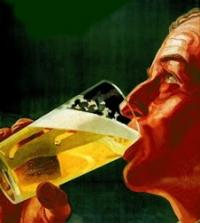pH 7.9
Total Dissolved Solids (TDS) Est, ppm 72
Electrical Conductivity, mmho/cm 0.12
Cations / Anions, me/L 1.1 / 1.1
ppm
Sodium, Na 15
Potassium, K < 1
Calcium, Ca 7
Magnesium, Mg 2
Total Hardness, CaCO3 26
Nitrate, NO3-N 0.1 (SAFE)
Sulfate, SO4-S 4
Chloride, Cl 5
Carbonate, CO3 < 1.0
Bicarbonate, HCO3 45
Total Alkalinity, CaCO3 37
Total Phosphorus, P 0.03
Total Iron, Fe < 0.01
"<" - Not Detected / Below Detection Limit
Edited by the_stain, 23 January 2017 - 03:27 PM.












